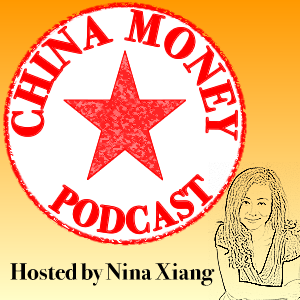In this episode of China Money Network, listen to the highlights of a panel discussion on investing in China and India featuring Gary Rieschel, co-founder of Qiming Ventures, Simon Eckersley, founder and CEO of Hao Capital, and Sam Gupta, founder of Indian investment firm, Grand Trunk Capital.
Listen to the podcast online, subscribe in the iTunes store, or read a summary transcript below.
Gary Rieschel on the leadership transition:
I’m personally very optimistic about the new leadership. When you look at Xi Jinping and Li Keqiang, they had done interesting things in their past. Both are business oriented, and both are pragmatic. But perhaps the most important appointment was Wang Qishan as the head of China’s anti-corruption efforts. He created the first joint-venture bank, China International Investment Corp, with Morgan Stanley in the mid-1990s. Already during the last weeks after the announcement, he’s talked about how people should have an open and transparent discussion about the wealth of the leadership in China. That’s something you would never have heard under Hu Jintao and Wen Jiabao.
Gary Rieschel on the Chinese economy:
As to the economy, you have to keep things in perspective. Of course, 7.4% is slower than before, but 99% of the countries in the world would be dying to have that growth, especially on a US$6.4 trillion base. So, you shouldn’t focus on the growth rate in China any more. You should focus on the aggregate GDP being created every year. If you look at the Yangzi River Delta, it’s bigger than Indonesia, and it’s growing at 30% faster than Indonesia. China adds in total half of Indonesia, or a quarter of California, or a quarter of India, every year in GDP. So when you think about aggregate GDP, it’s still staggering. However, investors do have to be more selective now compared to the past in terms of choosing investments.
Simon Eckersley on doing private equity investments in an economic downturn:
What we do in private equity is sometimes quite divorced from (the growth numbers). We are impacted by macroeconomic and policy changes, but generally, we are operating in a much more micro level. Certainly in terms of the sectors that we are focused on: the consumers, healthcare, environmental control. There have been sustained growth.
The idea of a 7% GDP growth, that’s just an average. There are plenty of sectors that are experiencing declining rates in China right now, such as the steel and real estate sector. But there are other sectors with much stronger growth. We have invested in a company that is a one-stop shop for home furnishing. It had 50% annual growth even during this supposed downturn.
Simon Eckersley on the difficulties in the exit market:
It’s effectively almost impossible to bring a Chinese company to the U.S. That’s effectively closed at the moment. It’s difficult in Hong Kong, in Germany, the U.K, and many other listing places. You have started to see trade sales occur, but it’s in infancy. We have certainly been impacted by the exit market during the past year or so. As a result, we have been paying much more attention to trade sales, which is always something that we have thought about, but now we are much more actively soliciting potential acquirers of our portfolio companies. But, I think the IPO market will come back – it’s almost a fashion thing.
Specifically in China, there have been lots of investments and therefore there needs to be lots of exits. Between the Shanghai Stock Exchange, and the Shenzhen Exchange, and Shenzhen’s Small Cap Exchange, there is a queue of 800 companies that are waiting to go public. But the pipe is quite narrow. This will take some time to alleviate. But I believe this is temporary. When you are in the middle of it, three or six months seem like a long time. But looking forward, there will be many more trade sales. That queue may be higher, but in the meantime, there will be many more companies that will be able to go public.
Gary Rieschel on the exit market:
Simon addressed the queue, but part of the problem is that companies must have certain number of years of profitability before they can go public. If you look at the history of venture-backed start-ups in Silicon Valley, there were lots of storied companies listing before reaching profitability. Once those companies have real revenues and the revenues are growing rapidly, they are listed on NASDAQ even though they are not profitable yet.
There is no exchange in Asia that you can do that with the exception of Taiwan. Taiwan is the only exchange that allows pre-profitable companies to list in a relatively straightforward fashion, and that’s within very narrow niches of the type of companies. So the liquidity is the problem. We have invested in the fastest growing company in the history of the venture capital industry, a company called Xiaomi. In 18 months, the company’s revenue grew from zero to US$1 billion in revenue. The CEO is very smart. He doesn’t want to talk to anyone from the public markets for another two years, until he can prove that he can do the second generation and third generation of the product.
Gary Rieschel on the opportunities and constraints in the healthcare sector:
The opportunities in healthcare is staggering. When we started Qiming in 2006, 2.5% of GDP went to healthcare. Now it’s 4.8%, and will be 9.5% or 10% by 2025. So if you are an investor and is wondering where to put your money, healthcare is what I think the best sector. The challenge is M&A activity. In the U.S., drug discovery happens, you do the pre-clinical trials, Pfizer comes in and buy the product for a ridiculous amount of money, or the whole thing goes bankrupt. In China, you haven’t had those really large exit yet. The M&A activity has been relatively small, either in the Internet space or healthcare side, and it’s almost non-existent in clean tech. So it’s going to take a while for the M&A market to mature.
Gary Rieschel is founder of Qiming Venture Partners, a US$1 billion-under-management venture capital firm started in 2006. Previously, Rieschel was the founder or lead investor in SOFTBANK Venture Capital, Mobius Venture Capital, SAIF Partners (China) and Ignition Partners. Earlier in his career, Rieschel held senior executive positions in Cisco Systems, Sequent Computer Systems and Intel.
Simon Eckersley is founder and CEO of Hao Capital, a growth capital private equity firm with US$500 million under management. Prior to co-founding HAO Capital in 2005, Eckersley spent 8 years at Goldman Sachs in London, managing assets for high net worth individuals and family offices. Eckersley also spent three years as an investment professional at Charterhouse Development Capital Ltd.


